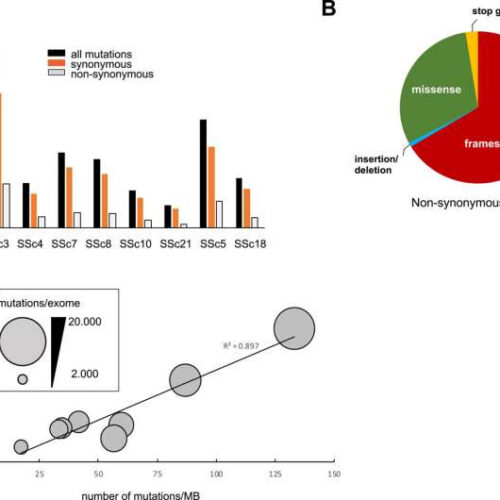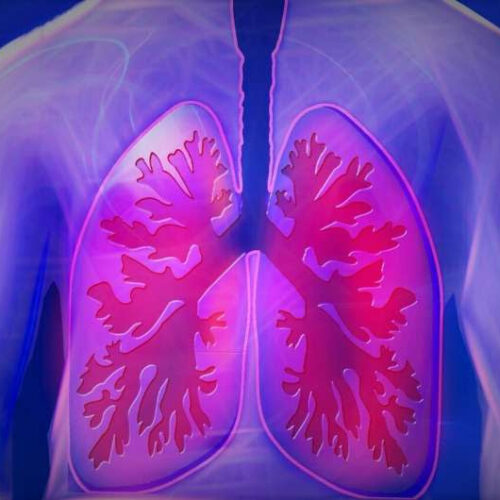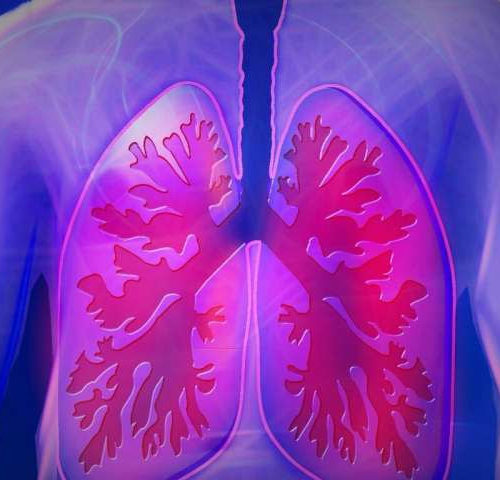MICHIGAN MEDICINE – UNIVERSITY OF MICHIGAN Systemic sclerosis — or scleroderma that affects the skin and internal organs -, is one of the rarest autoimmune diseases, affecting roughly 100,000 people (primarily women) in the United States., However, systemic sclerosis is devastating—it has the highest mortality rate among rheumatic diseases, according to Dinesh Khanna M.B.B.S., M.Sc.,...
Tag: <span>scleroderma patients</span>
Researchers find gene mutations in scleroderma patients that could point to new treatments
by Gillian Rutherford, University of Alberta Mutation burden in the skin of patients with SSc. Skin biopsies were obtained from the distal forearm, the sequencing libraries were prepared from the microdissected areas of fibrosis and analyzed by whole exome sequencing. A: The number of synonymous and non-synonymous mutations in the samples; B: the types of...
Potential biomarker found for lung disease in scleroderma patients
by University of Michigan Credit: CC0 Public Domain Researchers have discovered a protein that may predict disease severity for a lung condition that often proves fatal to patients with scleroderma. The recent study, published in Arthritis Care & Research and investigated by a Michigan Medicine researcher, found a novel adipokine, known as CTRP9, is associated with pulmonary function for...
Protein linked to progressive lung scarring in scleroderma patients
by University of Michigan Credit: CC0 Public Domain Systemic sclerosis is an autoimmune disease associated with inflammation and fibrosis, or scarring, that affects organs including the skin, heart, kidney and lungs. This form of scleroderma, this tightening and thickening of the skin, is a progressive, orphan illness that affects approximately 80,000 Americans and has no clear...



